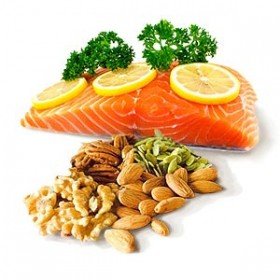According to a recent study, some people with high levels of supposedly “good” cholesterol are at much greater risk of heart disease.
A bloodstream tussle takes place between “bad” cholesterol dumping fatty material in the arteries and good cholesterol taking it away.
The Cambridge University study published in Science showed more “good” cholesterol was not always better.
It is thought the findings may help find new ways to protect the heart.
Eating olive oil, fish and nuts raises levels of high-density lipoprotein (HDL) – which is more commonly known as “good” cholesterol.
HDL is one of the things doctors test for when predicting your risk of a heart attack.
However, repeated trials that raise HDL with drugs have flopped, leading doctors to think something else is going on.
Some insight has come from studying rare mutations that leave people with high levels of good cholesterol.
Trials showed people with a mutation in a gene called SCARB1, which affects one-in-1,700 people, had very high levels of good cholesterol.
They also had an 80% increased risk of heart disease – that is roughly the same increased risk as for smoking.
Further experiments showed the mutation was preventing HDL from dumping the fat it had collected in the liver for processing.
There have been huge efforts put into drugs to raise HDL in the hope they have the same impact as statins, which lower the bad cholesterol.
While the researchers have questioned the importance of boosting levels of HDL cholesterol, they insist it still remains a valuable tool for predicting the risk of a heart attack.
https://www.youtube.com/watch?v=AxvfN79KS1U
